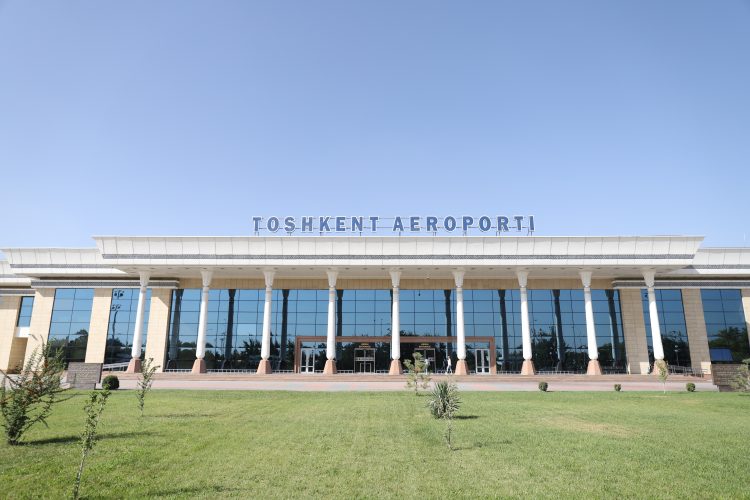Uzbekistan Airports and Changi Airports International to jointly develop Tashkent Airport
Posted: 31 May 2023 | International Airport Review | No comments yet
The partnership will jointly develop the Islam Karimov Tashkent International Airport, which will be the largest international airport of the Republic of Uzbekistan.


The agreement includes a feasibility study on a new airport to support Uzbekistan’s growing tourism industry. CREDIT: UZBEKISTAN AND CHANGI AIRPORT
Uzbekistan Airports Joint Stock Company (JSC) and Changi Airports International (CAI) have inked an agreement to jointly develop the Islam Karimov Tashkent International Airport. It will be considered the largest international airport of the Republic of Uzbekistan and the third busiest airport by passenger traffic in Central Asia since 2019.
The agreement was exchanged between Rano Juraeva, Chairman of the Board of Uzbekistan Airports JSC, and Eugene Gan, Chief Executive Officer of CAI, at the Uzbekistan Overseas Market Workshop organised by the Singapore Business Federation in Tashkent on 24 May 2023. The exchange was witnessed by Uzbekistan Deputy Prime Minister Jamshid Khodjaev and Singapore President Halimah Yacob, who was in Uzbekistan for a state visit.
Uzbekistan, strategically located at the heart of Central Asia and the crossroads of Europe and Asia, has a bourgeoning tourism industry buoyed by its rich cultural heritage and natural beauty. Passenger traffic at Tashkent Airport, the country’s main airport, exceeded pre-COVID-19 levels in 2022 to reach five million passengers. With robust traffic growth expected from a budding tourism industry, Uzbekistan Airports JSC plans to optimise the operations of the current Tashkent Airport as well as develop a new airport that would help advance its trade and tourism potential.
Under the agreement, CAI will provide consultancy and technical services to Uzbekistan Airports JSC in the management and operation of the existing Tashkent Airport, which includes capacity optimisation, improving operational standards, commercial planning and traffic development. CAI will also work with Uzbekistan Airports JSC to develop and complete a feasibility study in relation to the new Tashkent Airport Project.
“Tashkent has a huge potential as an international hub connecting Europe and Asia. The existing airport has many limitations – with its location in the centre of the city, there is simply nowhere to expand it. At the same time, passenger traffic is fast increasing with the airport reaching its capacity and not having enough aircraft parking lots during peak periods. Therefore, we are working on the issue of building a new airport. We have invited the best airport in the world, Changi Airports International, to be our consultant to help us develop a feasibility study, taking into account the creation of an international hub and the use of the most modern airport technologies in the construction of a new air harbour. They will also provide consultancy to optimise the operation of the existing airport in terms of aviation and non-aviation activities,” said Rano Juraeva, Chairman of the Board of Uzbekistan Airports JSC.
Eugene Gan, Chief Executive Officer of CAI, said: “Changi Airports International is pleased to collaborate with Uzbekistan Airports JSC. Uzbekistan is one of the fastest-growing countries in the Central Asia region with great potential for business and tourism. We look forward to sharing our airport development and management expertise to optimise the capacity, operational standards and financial performance of the existing Tashkent International Airport as well as support the plans to develop the new airport, which is in the pipeline, to support Uzbekistan’s plans to grow its trade and tourism industries.”
The International Airport Summit is open for registration!
Date: 19 – 20 November 2025
Location: JW Marriott Hotel Berlin
At our flagship event of the year, we will dive into the future of airport operations, with expert-led sessions on passenger experience, innovative smart technologies, baggage handling, airside operations, data, security, and sustainability.
This is where global airport leaders come together to share insights, challenges, and real-world solutions.
Limited complimentary passes are available for eligible professionals – first come, first served!
Related topics
Airport development, Operational efficiency, Terminal operations
Related airports
Related organisations
Changi Airports International (CAI), Uzbekistan Airports Joint Stock Company (JSC)


















